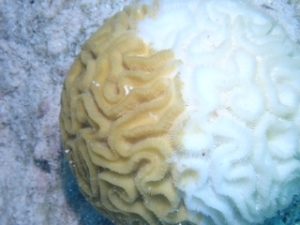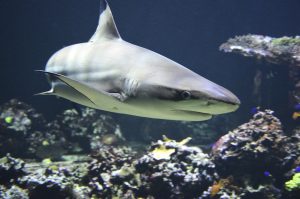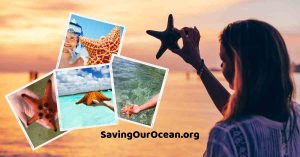The importance of our ocean reefs
To many people, coral reefs may seem like just some colorful ocean rocks that serve no purpose to the ocean but these “colorful rocks” are alive. While they are living, they are not plants, they are animals because they can not make their food. These coral reefs are diverse and vibrant ecosystems that are home to a vast array of marine life. Coral reefs provide essential habitats for numerous species, including fish, crustaceans, mollusks, and many other organisms. Preserving coral reefs is of utmost importance due to their ecological significance and the threats they face. Climate change poses a major threat to coral reefs as rising ocean temperatures and ocean acidification stress the coral organisms, leading to coral bleaching and, in severe cases, death. Other factors, such as overfishing, destructive fishing practices, pollution, and coastal development, also contribute to the degradation of coral reef ecosystems.
Preserving our reefs
To preserve our coral reefs, some of these actions can be taken:
- Reduce greenhouse gas emissions: Addressing climate change is crucial for the long-term survival of coral reefs. We must reduce carbon emissions by transitioning to renewable energy sources, promoting energy efficiency, and adopting sustainable practices.
- Sustainable fishing practices: Implementing and enforcing fishing regulations that prevent over fishing and destructive fishing methods can help maintain the delicate balance of reef ecosystems.
- Marine protected areas (MPAs): Establishing and effectively managing MPAs around coral reefs can safeguard their biodiversity and provide a safe haven for marine life.
- Pollution control: Reducing land-based sources of pollution, such as agricultural runoff and wastewater discharge, can minimize the negative impacts on coral reefs. Promoting sustainable practices on land helps to keep the water surrounding the reefs clean.
- Public awareness and education: Educating communities, tourists, and stakeholders about the importance of coral reefs and the actions they can take to protect them fosters a sense of responsibility and encourages sustainable behaviors.
- Reef-safe sunscreen: is designed to protect your skin from harmful UV rays while minimizing its impact on coral reefs and marine ecosystems. Traditional sunscreens often contain certain chemicals, such as oxybenzone and octinoxate, which can be harmful to coral reefs when they wash off into the ocean.
The lifecycle of our reefs
There are 4 important stages of a reef life cycle,
- reproduction
- egg development
- settlement
- budding.
In the first stage, sexual reproduction occurs through synchronized mass spawning events, where corals release eggs and sperm into the water simultaneously. This event often only happens at certain times, typically triggered by environmental factors. The released eggs and sperm mix in the water column, leading to fertilization.
In the second stage Fertilized eggs develop into microscopic larvae known as planulae. They are carried by ocean currents, often for days or weeks, and rely on energy reserves from the yolk within them.
The third stage begins when planulae encounter suitable substrates, such as rocks or existing coral structures, they begin the process of settlement. They undergo metamorphosis, attaching themselves to the substrate and transforming into sessile polyps.
Finally once settled, the polyps grow and multiply through asexual reproduction called budding. Budding involves the division of a polyp into two or more genetically identical clones. As budding continues, the colony expands both vertically and horizontally, contributing to the growth and structure of the coral reef. (this entire process can take up to 10,000 years!)
Understanding the different stages of reef reproduction, from sexual reproduction to settlement and budding, provides insights into the intricate life cycle of coral reefs. It also highlights the remarkable ability of corals to regenerate and build the intricate structures we know as coral reefs, supporting diverse marine ecosystems and providing essential ecological services.
How can you participate
Learning about new things can spark your interest to want to join. Although it may seem difficult to participate because corals live in the ocean and breathing underwater isn’t exactly something humans can do, it is surprisingly easy. Many coral restoration groups are open to new volunteers to help such as I.CARE. These groups focus on planting and restoring our beautiful reefs and helping spread education about these animals.




1 thought on “Coral Reefs Are Actually Alive: Learn About Them And How We Can Preserve Them.”
Hey There. I found your blog using msn. This is a really well written article.
I’ll make sure to bookmark it and come back to read more
of your useful info. Thanks for the post. I will certainly comeback.